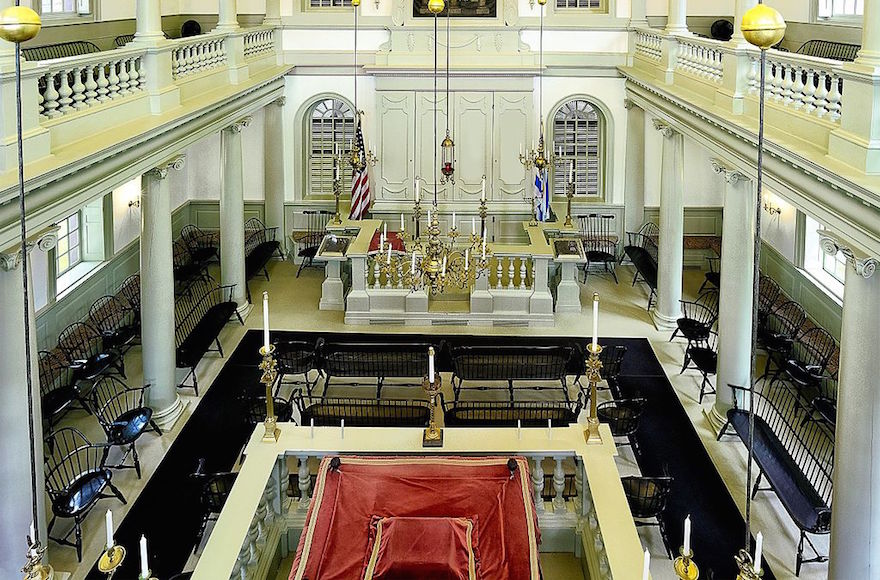(JTA) — A federal appeals court ruled that a synagogue in New York is the owner of the country’s oldest synagogue building and its set of historically significant silver bells that are used to adorn Torah scrolls.
On Wednesday, the 1st Circuit Court of Appeals in Boston ruled in favor of Manhattan’s Shearith Israel, which is the oldest Jewish congregation in the country, giving it control of the 250-year-old Touro Synagogue in Newport, Rhode Island, the religious home of Congregation Jeshuat Israel.
The decision also gives Shearith Israel ownership of bells, called rimonim, which are late 18th-century filials handcrafted by Myer Myers, one of the most prominent silversmiths of the Colonial era. The rimonim are valued at $7.4 million.
Shearith Israel has served as trustee of the Touro Synagogue dating back to the early 19th century.
Retired U.S. Supreme Court Justice David Souter serves on the appeals court panel of judges.
In May 2016, U.S. District Court Judge Jack McConnell ruled in favor of Jeshuat Israel, granting it control of Touro Synagogue, including its claim of ownership of the silver rimonim.
In his decision that traced the history of the Newport Jewish community and its relationship with Shearith Israel, McConnell revoked Shearith Israel as the trustee and instead named Jeshuat Israel trustee of the building.
The current dispute began in 2012, when Congregation Jeshuat Israel, which holds regular services at Touro, attempted to sell the silver bells to establish an endowment to maintain a rabbi and care for the building, which was designated a national historic site in 1946. Shearith Israel sued to stop the sale and attempted to evict the 120-family congregation from the building.
The rimonim have been on loan from the Touro Synagogue to the Museum of Fine Arts in Boston, which had made an offer to purchase them. The museum has since rescinded its offer.
The Touro building was consecrated in 1763, when the town had one of the largest Jewish populations in the American colonies, but stood empty in 1776 when most of the city’s Jewish population fled at the start of the Revolutionary War, Reuters reported. Members of the synagogue then shipped the rimonim to the New York synagogue and asked its leaders to act as trustees for the temple. Worshippers returned by the 1870s.
JTA has documented Jewish history in real-time for over a century. Keep our journalism strong by joining us in supporting independent, award-winning reporting.






